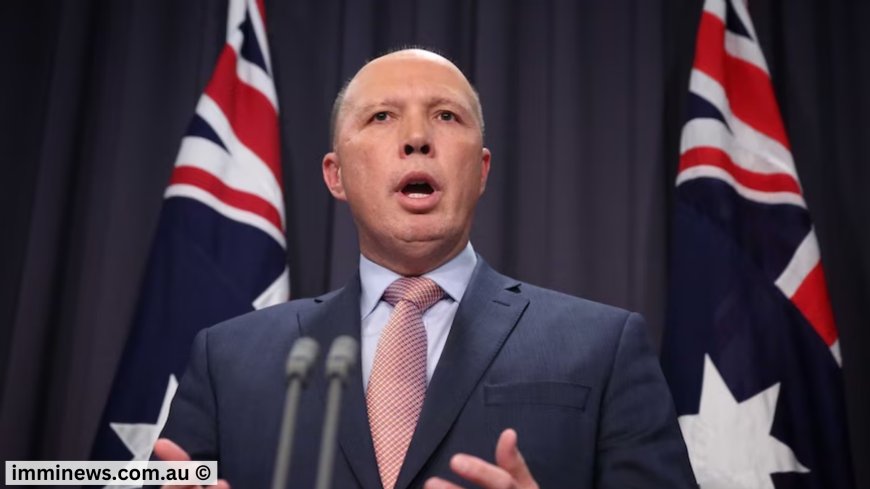Shocking New Proposal: Is Australian Citizenship Losing Its Value?
Explore the significance of protecting Australian citizenship and the risks of granting ministers the power to revoke dual nationals' citizenship. Learn how this could impact millions of Australians.

Introduction
In recent years, the value of Australian citizenship has come under scrutiny, particularly with proposals that could allow ministers to strip dual nationals of their citizenship. While public discussions focus on whether such proposals are politically motivated or feasible, the real concern lies in the erosion of rights for dual nationals and the potential long-term consequences of such policies. This article explores the significance of protecting Australian citizenship and highlights the dangers of granting ministerial powers to revoke citizenship.
Significance of Protecting Australian Citizenship
1. Preserving Equal Rights for All Citizens
Australian citizenship, once granted, has historically been viewed as enduring and permanent. This foundational principle has fostered a sense of belonging and security for migrants, integrating them fully into Australian society. However, allowing ministers to revoke citizenship for dual nationals creates a two-tier system where one group of citizens enjoys more protection than another. This disparity undermines the principles of equality and fairness that form the bedrock of Australia's democratic society.
Explore Australian immigration policies on A2Zimmi
2. Safeguarding Against Misuse of Power
Granting ministers the authority to strip citizenship without court oversight opens the door to potential misuse. While initial intentions may focus on serious criminal offenses, history has shown that extraordinary powers introduced in times of crisis often become normalized and expanded over time. Dual nationals could find themselves vulnerable to political decisions that redefine acceptable behavior or allegiance.
Learn more about current citizenship laws on Home Affairs
3. Protecting Dual Nationals from Unjust Deportation
Dual nationals convicted of crimes already face punishment under Australian law. Stripping them of citizenship and deporting them to countries they may have little or no connection with introduces an additional layer of punishment. This policy disproportionately targets individuals who, despite their dual nationality, consider Australia their home. Furthermore, this power could extend beyond criminal convictions to perceived threats, setting a dangerous precedent for future governments.
4. Upholding Australia’s Reputation as an Inclusive Society
Since the inception of Australian citizenship in 1949, successive governments have promoted citizenship as a means of integrating migrants and building an inclusive, multicultural society. Eroding this inclusive vision by creating a second-class status for dual nationals damages Australia's global reputation as a country that values diversity and equality.
5. Ensuring Constitutional Safeguards Remain Intact
The Australian Constitution protects against arbitrary punishment by ensuring that only the courts have the power to convict and penalize individuals. By circumventing this process and granting ministers the power to strip citizenship, constitutional safeguards are effectively weakened, creating a dangerous precedent where ministerial discretion can override established legal processes.
The Shift in Citizenship Policy
A Legacy of Inclusivity
For decades, Australian governments encouraged migrants to acquire citizenship, emphasizing equal participation in society. Laws were progressively eased to promote inclusivity and ensure that Australian citizenship provided security and belonging to all individuals, regardless of their background.
The Introduction of Citizenship Revocation Powers
The landscape began to shift in the early 2000s, with policies allowing the government to strip citizenship from dual nationals convicted of certain offenses. While initially introduced as a measure to protect national security, the scope of these powers has gradually expanded. The possibility of granting ministers the authority to make these decisions without judicial oversight further exacerbates the risks associated with these policies.
The Long-Term Implications for Dual Nationals
Increased Vulnerability for Millions of Australians
It is estimated that up to four million Australian citizens hold dual nationality. These individuals could be subject to policies that treat them differently based on their citizenship status. The irony is that many of these dual nationals, including those born in Australia, may not even be aware of their dual citizenship status.
The Risk of Expanding Powers Over Time
History demonstrates that powers granted to governments during times of crisis tend to expand over time. If ministers are granted the power to revoke citizenship, it is likely that the scope of these powers will increase, potentially encompassing a wider range of offenses or even political dissent.
Why Constitutional Protections Matter
Amending the Constitution to allow ministers to revoke citizenship would fundamentally change the nature of Australian citizenship. Rather than strengthening national security, such measures could weaken trust in government institutions and foster uncertainty among dual nationals. The best way forward is to reinforce constitutional guarantees that protect citizenship for all Australians, regardless of their background.
Protecting the Integrity of Australian Citizenship
The significance of protecting Australian citizenship cannot be overstated. Ensuring that all citizens—regardless of dual nationality—are treated equally under the law preserves Australia's values of fairness, inclusion, and democracy. While addressing national security concerns is essential, stripping citizenship without judicial oversight sets a dangerous precedent that could harm innocent individuals and destabilize societal cohesion.
Schedule a consultation with A2Zimmi for expert guidance on citizenship and immigration matters
Visit A2Zimmi or schedule a consultation today to stay informed about your citizenship rights and navigate complex immigration processes with expert assistance.
What's Your Reaction?
 Like
0
Like
0
 Dislike
0
Dislike
0
 Love
0
Love
0
 Funny
0
Funny
0
 Angry
0
Angry
0
 Sad
0
Sad
0
 Wow
0
Wow
0









































































































